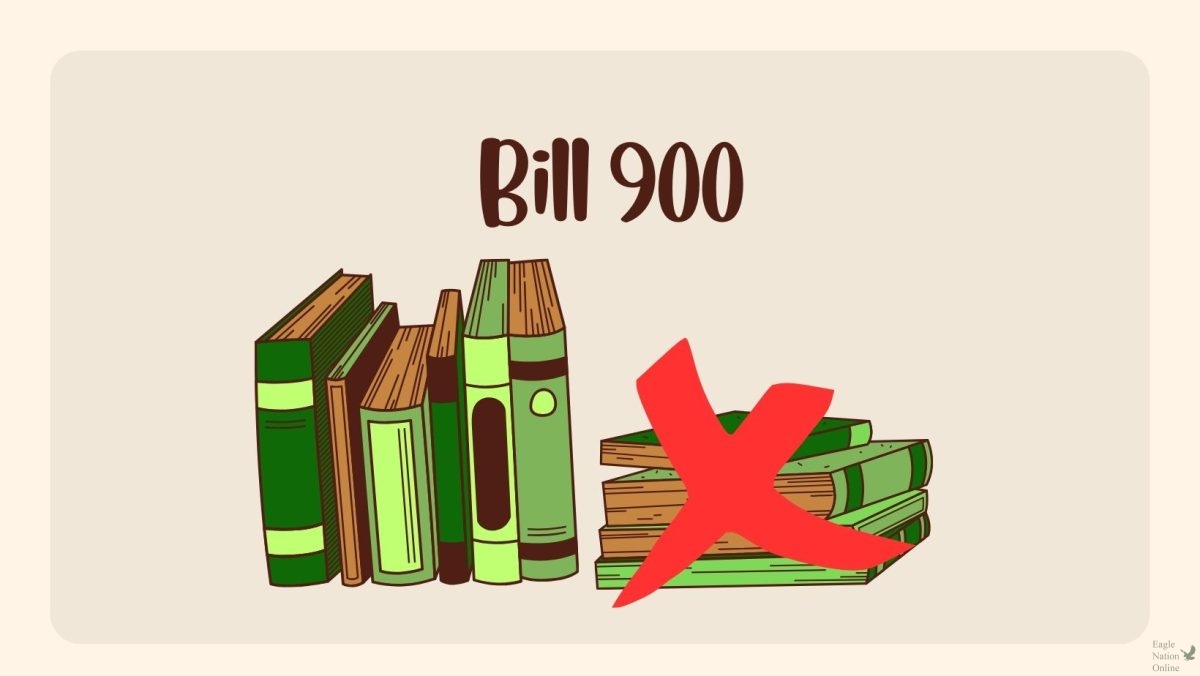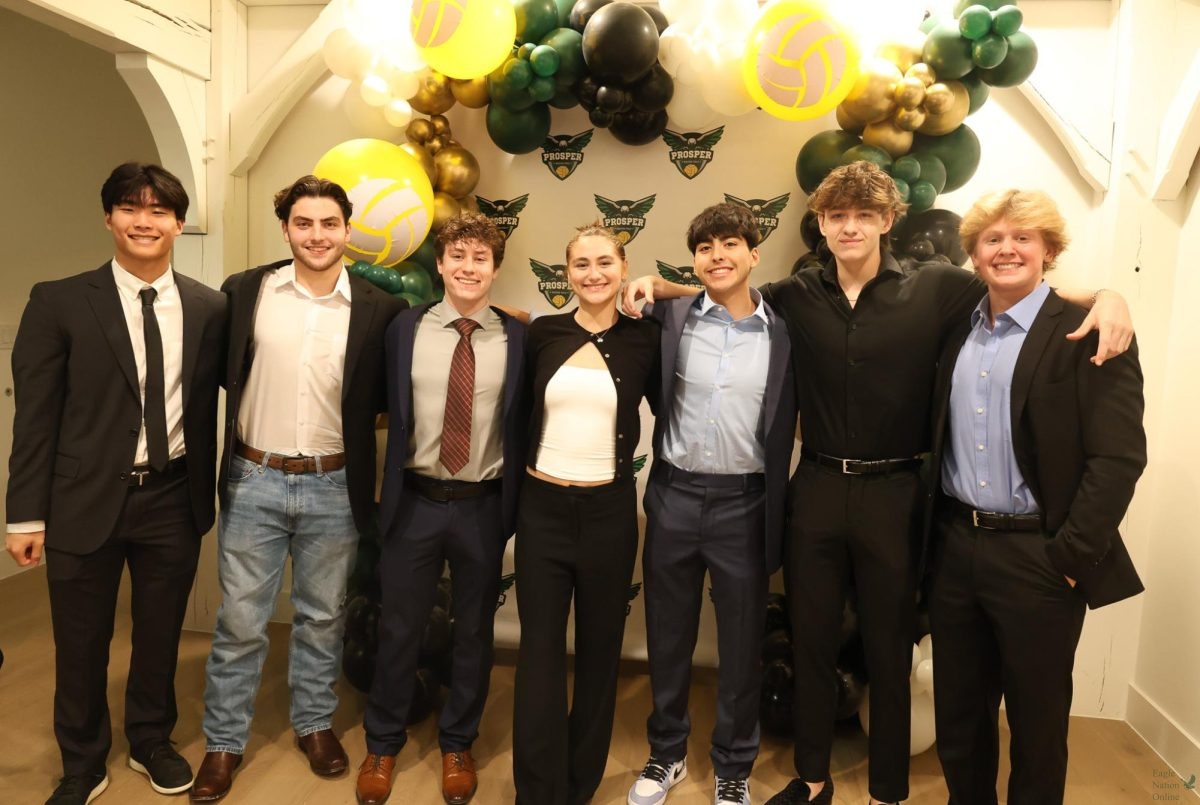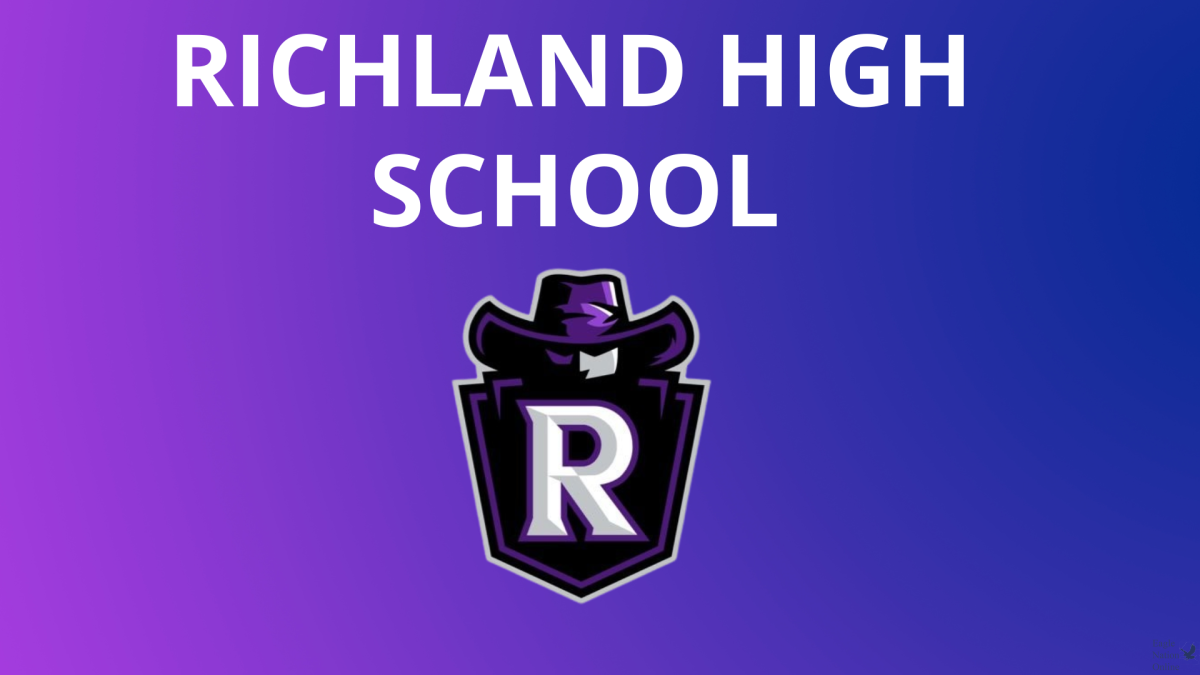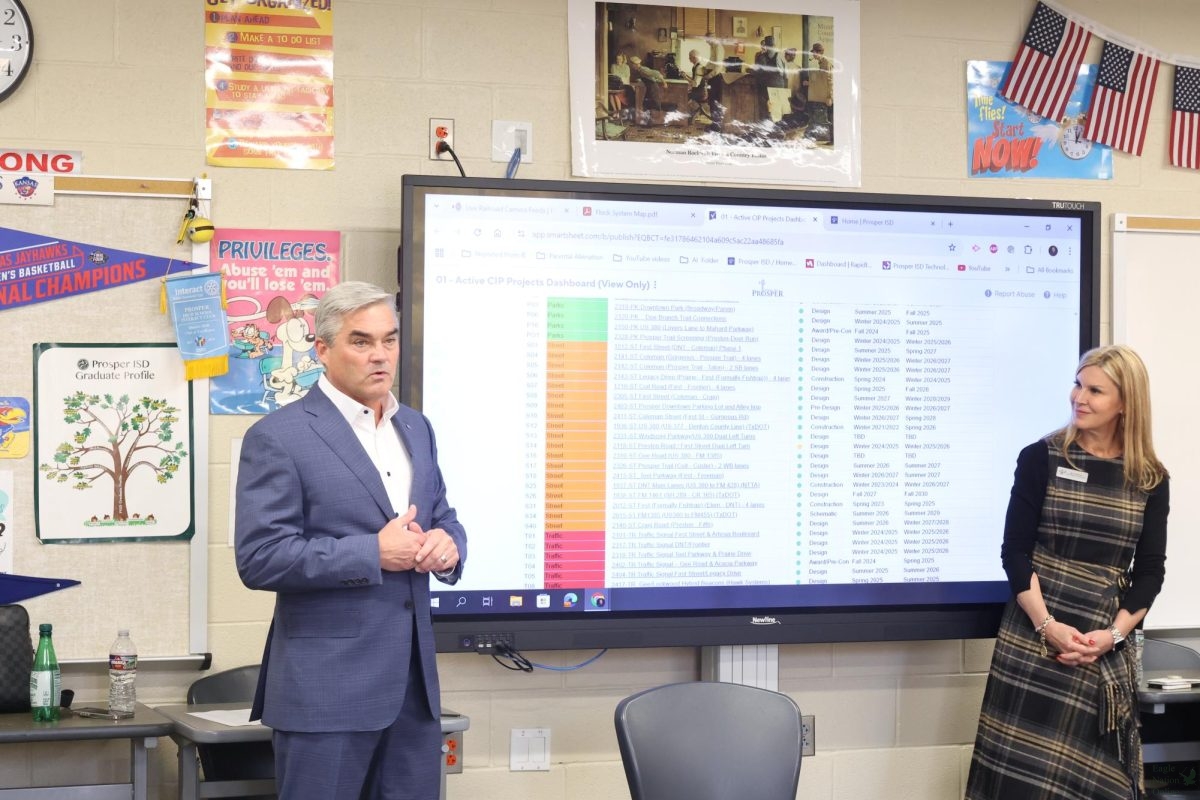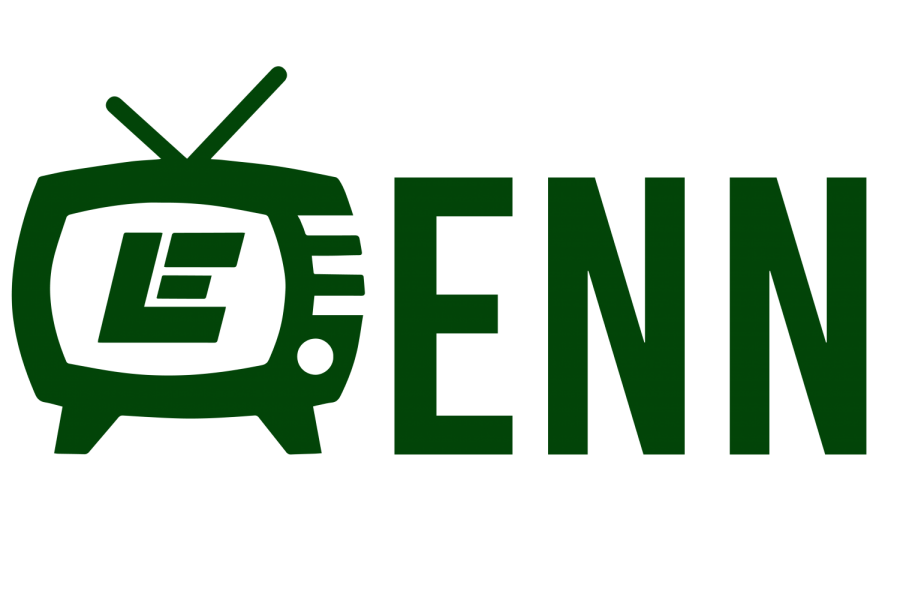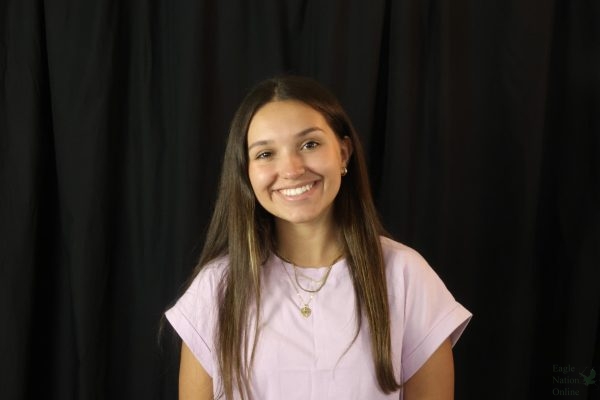As new books come into Prosper Independent school district libraries, some books may be brought back in for review – and those may even find themselves removed from check-out shelves because of legislation that started as Bill 900, also known as “the READER Act,” which passed April 20 in the Texas House of Representatives. This law “requires book vendors to rate all their materials by April 1 next spring based on their depictions. On May 23, the Texas state senate passed the bill. The legislation, signed by Gov. Greg Abbott June 13, went into effect Sep. 1 before various book vendors and publishers filed a lawsuit against the bill.
Shortly after the Texas senate passed this law, known as the “READER Act,” two Texas bookstores – Austin’s BookPeople, and West Houston’s Blue Willow Bookshop, alongside nationally recognized publishers, including the American Booksellers Association, filed a lawsuit against the bill. A court ruling regarding House Bill 900 came in response to the lawsuit.
Throughout the court documents, individuals questioned whether the legislation violates the Free Speech Clause of the First Amendment. The federal judge appointed to the case paused the legislation from going into effect, and granted book sellers a temporary injunction to stop the enforcement of the “READER Act.” While the law’s enforcemnt remains on hold and book vendor rating lists aren’t due until April 1, 2024, Prosper ISD Chief Communications Officer Rachel Trotter said the district already has a plan in place to be ready for the legislation and to maintain library resources.
“Because library material collection upkeep is an ongoing process, library materials are weeded on a daily basis in Prosper ISD,” Trotter said. “This means that materials are removed or weeded from the campus collection for a variety of reasons, including, but not limited to, material damage, outdated information, low reader interest, or the material does not meet district library material selection guidelines.”
The district determines their decisions based on the Texas Education Agency guidelines, as well as their current inventory.
“Prosper ISD library books are purchased using district library material-selection guidelines,” Trotter said. “Which, include age and/or grade level recommendations from publishers and book reviews from professional journals.”
The district refers to professional journals and experts when it chooses what books go in each library depending on the age groups of the school.
“Prosper ISD librarians currently use book reviews from professional journals and age and/or grade-level recommendations from publishers to provide information about a book when selecting materials for purchase,” Trotter said. “While also considering the needs and interests of their students, teachers, and curriculum.”
Trotter said that House Bill 900 could add to the material-selection guidelines that are currently being used in Prosper and that the district still is still waiting for the Texas Education Agency to release the library material guidelines before making a decision on how to proceed.
“With the passage of House Bill 900,” Trotter said, “Prosper ISD and district librarians will still use several pieces of information to determine whether a material should be purchased for the school library.”
During a legislative debate, the bill’s author, Rep. Jared Patterson said that if reading materials have sexually-explicit material that he would view it as “an incredible win for the students to not have those available in the library”. Others representatives and senators, though, said the legislation could create unnecessary workloads for book vendors and librarians. Vendors will compile a list of the materials they have rated as “sexually explicit” or “sexually relevant” by April. However, TEA can override the vendors’ ratings with its own. The TEA’s ratings will be final and unable to be appealed. Any book labeled as “sexually explicit” by the vendor or TEA will not be allowed in public school libraries. Books labeled as “sexually relevant” would require parental permission before a student could check them out.
Librarian Stephanie Riley said that Prosper has a wide variety of book options.
”
We have over 1,500 e-books, almost 500 audiobooks available online through Sora,” Riley said. “And for physical copies, we have over 7,600 books.”
Riley said that the library gets a new shipment every month from a subscription service, which includes around five to eight books. They also have a placement order every fall.
“We replace lost books,” Riley said ” We also fill in series where we’re missing books and add some new books that have been published.”
While the numbers indicate thousands of books are available, the addition and emphasis placed on the “makerspace” options in library, which now is known as “The Nest,” has left some students, like sophomore Khloe Roan, with a different perspective about this space.
“There’s very few books in the library, and it’s more of like, you go in there and sit. It’s more focused on the makerspace than the actual library,” Roan said. “I went to the library at Rushing Middle School. It had way more books, way better books, a much wider variety, and a more complete set – so I don’t go to the library here.”
The PHS library has transitioned to be both a library as well as a ‘makerspace’ to help students complete projects for any of their courses. Librarians have many tools available for students to utilize, including 3D printers, art supplies, and more materials.
“They have like, maybe two popular series here at PHS, and they don’t even have the complete series,” Roan said. “A middle school library has multiple copies of the complete series. I don’t know why a middle school is beating a high school library. Even my old middle school, which is Reynolds and is 2 trillion years old, had a better book selection.”
Roan described how she is not in favor of having few selections of books in the libraries, as well as the new legislation.
“You don’t see people taking shows off Netflix because they’re bad, and they ‘poison children’s minds,'” Roan said. “People are so dramatic. They overlook certain things when there’s a completely different example that could be worse. Like there’s terrible TV shows out on kids’ Netflix, and then you’re taking books that are meant for middle schoolers out of a high school library.”
After vendors rate their books and have the ratings approved by TEA. School districts then will have to retroactively remove any material deemed sexually explicit from their libraries.
“There are legal adults in this building,” Roan said. “We should be able to read whatever we want. It’s a book. It’s like a fun story. There’s so much more stuff out on the internet or online that could probably be taken away or taken down, and you choose books of all things. Actually helping develop your mind – while reading and training your brain. But, just watching a terrible TV show is worse than the content of the book. I disagree strongly with that bill.”
Editor’s Note: Tess Gagliano, Anisha Mandem and Erica Deutsch contributed to the reporting for this article.



